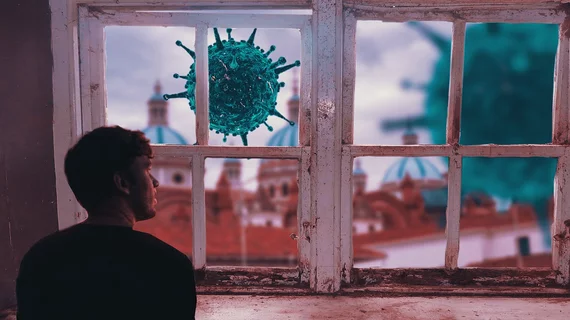Whole-body MRI scans show organ damage in long COVID patients
British researchers studying the long-term side effects of COVID-19 may have found some answers thanks to whole-body MRIs.
According to a study that looked at 259 patients across 13 hospitals in the U.K., patients who have been hospitalized as a result of COVID-19 are more likely to have abnormalities in one or more organs than patients with less severe illness, particularly in the lungs, kidneys and brain. Specifically, MRI scans of lungs were 14 times more likely to reveal abnormalities, followed by three times more likely for the brain, and twice as likely in the kidneys.
There were no signs of differences in the health of the heart or liver, despite COVID-19 being linked to severe heart problems.
These abnormalities may signal why symptoms such as fatigue, cough, and malaise seem to linger for some people post-recovery. The study looked at patients with a mean age of 57 who were hospitalized between March 2020 and November 2021. Scans were conducted on the patients and a control group five months after discharge. The full findings were published in Lancet Respiratory Medicine. [1]
"The patient's age, how severely ill they were with COVID, as well as if they had other illnesses at the same time, were all significant factors in whether or not we found damage to these important organs in the body," Betty Raman, MD, a specialist with the University of Oxford and one of the study's lead researchers, told the BBC.
Some reported symptoms of long COVID patients were consistent with what was seen on MRI scans. For example, the presence of lung damage or abnormalities could be linked to patients who experience chest tightness. Similarly, those with multi-organ abnormalities were more likely to have more significant mental and physical impairment. However, many symptoms could not be directly correlated to what was seen in MRI images.
“"What we are seeing is that people with multi-organ pathology on MRI - that is, they had more than two organs affected - were four times more likely to report severe and very severe mental and physical impairment," Raman said.
The findings are part of a much larger body of research examining the potential long-term effects of COVID-19, the Phosp-Covid study. The study aims to better understand the symptoms and specifics of long COVID so tests and treatments can be developed.
For now, long COVID remains a mystery, one that Raman and her colleagues agree requires more research.They recommend patients who had severe COVID-19 symptoms seek follow-up care, given the potential for organ damage in their study findings.
While significant, the findings in Raman’s study are limited by a small sample size. Many of the findings have also yet to be repeated, as related research is ongoing.

